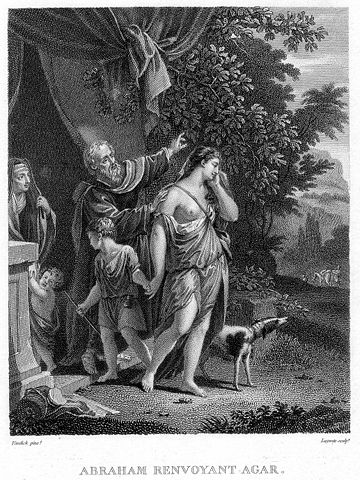 Four of the great patriarchs of Torah were faced with the deserved destruction of unrighteous people, and the all reacted differently.
Four of the great patriarchs of Torah were faced with the deserved destruction of unrighteous people, and the all reacted differently.
When God told Noah that he would destroy the entire world by a great flood, he spent his days building an ark to save his family according to God’s command, but also in preaching to the lost. Even though God had told him the world was beyond saving, he meant to try it anyway. God did not rebuke him for it, and the Apostles even praised Noah for his great work as a preacher. Even so, his efforts seem pointless. I doubt that he gained anything useful from them except for a greater understanding of the debased nature of man. God killed every living person on the planet outside of Noah’s small family.
A few hundred years later, God told Abraham that he was about to destroy Sodom. The people there had never done anything for Abraham, and in fact had caused him a considerable amount of trouble. Abraham knew that Sodom was a cesspit and didn’t want anything to do with it, yet he dared to bargain with God to save the people of Sodom anyway. The remarkable thing is that God entertained this negotiation. Like Noah before him, Abraham’s efforts went unrewarded beyond the personal gain of a greater understanding of God and man. God sterilized Sodom with fire, saving only Lot, his wife, and two daughters.
Lot too, tried to save more than were only in his house. He tried to save his married daughters and their families as the angels told him, but he couldn’t even convince those whom God had told him to save. He should have been working to save the people of Sodom all along, but he waited until it was too late, and then he couldn’t even save what was once his own. Even those family members who had escaped with him would be taken away, his wife by her own disobedience, and his daughters by his own poor judgment and the infectious wickedness of Sodom that they had brought with them. Lot, too, learned something of God and human nature, but he couldn’t save anyone.
Later, Moses would be given the opportunity to save others multiple times. He tried to save Pharaoh and the people of Egypt through preaching, but he already knew that they wouldn’t listen and would be crushed beneath God’s wrath. However, the outcome in Moses’ other opportunities was different than all those previous. He called Israel out of Egypt, and they followed him and the pillar across the Red Sea to safety. He interceded on Israel’s behalf several times in the wilderness, even offering his own life, and caused God to spare them each time.
I’m not sure that Moses was such a better man than Abraham or Noah. (A strong argument could be made concerning Lot, however.) They were all great men of God. So why did Moses succeed where his ancestors had failed?
The answer is the same that must be given to the man called to be a shepherd who would rather be a traveling evangelist, to a prophet who would rather be a king, and to a hand that would rather be an eye: It wasn’t their job.
Noah’s job was to clear the land. He uprooted trees, cut sod, and tilled the soil. It didn’t matter how long he preached to the blades of grass; they would never become wheat. Abraham planted seeds in the soil Noah had prepared. He weeded, watered, and fertilized. And Lot…well, Lot tried, but in the end, all he could do was transplant a few questionable tares from one garden to another.
But Moses harvested. He arrived in just the right season, and he reaped where he hadn’t sown. That was simply his role to play. It doesn’t necessarily mean that Moses was greater than Abraham. Where would the reaper be without the sower? Moses just had a different job to do.
(Originally written for Soil from Stone, January 22, 2013.)



